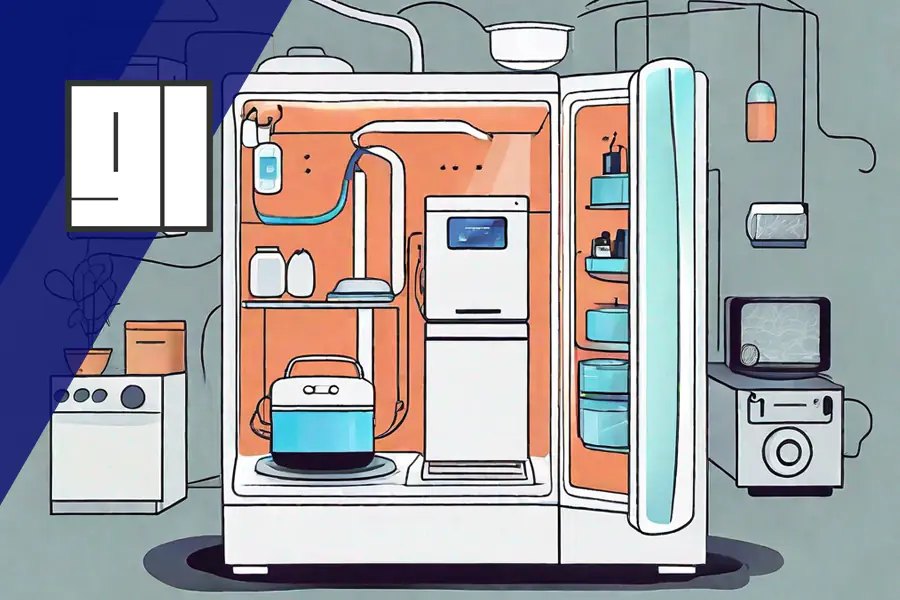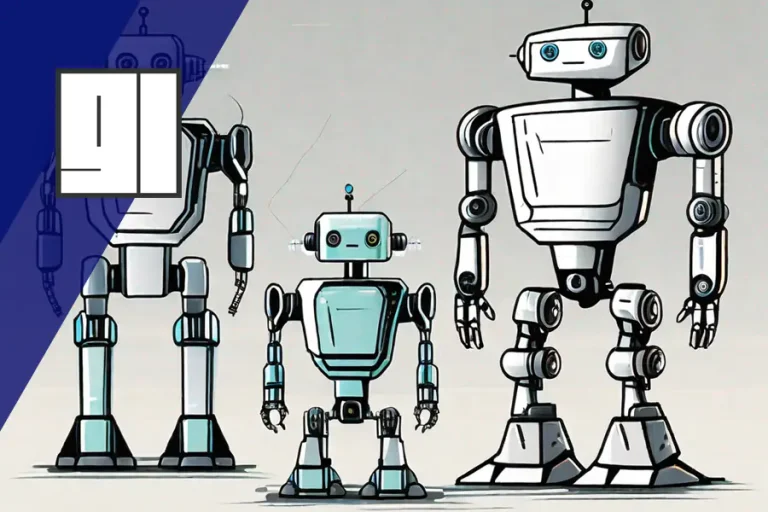AI in Everyday Life
Hey there! Ever wondered about the impact of artificial intelligence (AI) on our daily lives? In this article, we’ll dive into the world of AI in everyday life, uncovering its presence in consumer technology, transportation, healthcare, finance, and even entertainment.
What’s In It For You?
- Overview: Learn where AI is used in our daily lives.
- Future-Ready Skills: Understand how growing up with AI technology can equip you with essential cognitive skills for the future.
- Pros & Cons: Listen to both sides and draw your own conclusions on AI in our lives.

But that’s not all! You’ll also explore what it’s like for children growing up with AI technology. We’ll discuss both the potential benefits and drawbacks of this AI-driven upbringing, particularly its impact on learning. It’s important to understand how AI can shape the educational experiences of the younger generation.
But you won’t hear just the enthusiast, no you’ll encounter diverse voices expressing their opinions on AI integration. You’ll hear to the pros and cons shared by experts and enthusiasts, shedding light on the incredible advantages AI holds while also addressing concerns and ethical considerations. It’s essential to hear all sides of the story and understand the nuances of this rapidly evolving technology.
So, whether you’re a tech aficionado, a concerned parent, or simply curious about how AI is transforming our lives, this article will give you a comprehensive overview. By the end of this blog post, you’ll have a better grasp of the fascinating world of AI and its impact on our society and our daily lives.
Integration of AI in Everyday Life

Virtual assistants like Siri, Google Assistant, or Alexa have transformed the way we interact with smartphones and smart speakers. These intelligent personal assistants assist with tasks such as setting reminders, sending messages, or answering questions based on natural language processing algorithms.
Streaming services utilize AI-powered recommendation systems to curate personalized content, keeping us engaged and entertained. Additionally, smart home devices enable hands-free control through voice commands, making our lives more convenient and efficient.

Ride-sharing apps employ AI algorithms to determine dynamic pricing based on demand and supply. GPS navigation systems provide real-time traffic updates, helping us find the fastest routes.
The advent of autonomous vehicles and advanced driver assistance systems promises safer and more efficient transportation in the future, underpinned by AI technology.

Medical diagnosis benefits from AI’s ability to analyze vast amounts of patient data and aid in accurate diagnoses. AI-enabled imaging systems facilitate early detection of diseases and assist in treatment planning.
AI chatbots provide immediate support and guidance, enhancing healthcare access and responsiveness. Personalized medicine, tailored to an individual’s genomic profile, is made possible through AI’s ability to analyze extensive genetic data.

The finance and banking sector heavily relies on AI’s capabilities. Fraud detection and prevention systems employ machine learning algorithms to detect suspicious transactions and patterns.
Algorithmic trading utilizes AI to analyze market data and make informed investment decisions. Virtual financial assistants, such as chatbots or robo-advisors, provide personalized financial advice, making financial services more accessible to a wider audience.

Content recommendation systems, powered by AI algorithms, suggest personalized content based on user preferences, leading to a more tailored and engaging experience.
Natural language processing algorithms are employed to generate news articles or summaries, allowing for quick and efficient information dissemination. AI-generated art and music showcase the creative potential of AI algorithms, blurring the boundaries between human and machine.
Growing up with AI technology
Potential Benefits: AI has the potential to significantly enhance children’s learning experiences. One of the key advantages is personalized learning. AI-powered systems can adapt to individual students’ needs, preferences, and learning styles, providing tailored content and exercises to maximize their understanding and engagement. This personalized approach can help children learn at their own pace, explore their interests, and develop a deeper understanding of the subject matter.
Another benefit is the availability of educational resources and tools powered by AI. AI can augment traditional classroom instruction by offering interactive simulations, virtual reality experiences, and intelligent tutoring systems. These resources can make learning more engaging, immersive, and interactive, enabling children to grasp complex concepts in a fun and intuitive way.
Drawbacks and Challenges: Despite the potential benefits, there are several drawbacks and challenges associated with growing up with AI. One concern is the reliance on technology for learning. Overdependence on AI systems may hinder children’s ability to think critically, solve problems independently, and develop essential cognitive skills. It is important to strike a balance between utilizing AI as a useful tool and allowing for human creativity and problem-solving.
Ethical considerations also come into play. AI systems are based on algorithms that are trained on vast amounts of data. If that data contains biases or inaccuracies, it can unintentionally perpetuate and amplify existing biases. This can lead to biased recommendations or reinforce stereotypes, potentially impacting the diversity and inclusiveness of children’s learning experiences.
Additionally, concerns arise regarding data privacy and security. The use of AI systems may involve collecting and analyzing personal data, raising questions about how that data is stored, protected, and used. It is crucial to establish robust safeguards and transparent practices to ensure the privacy and security of children’s data.
Impact on Learning: The integration of AI in children’s learning experiences has the potential to transform education. By providing personalized learning experiences and interactive resources, AI can cater to individual needs, enhance engagement, and facilitate deeper understanding of the material. However, it is important to strike a balance between AI-assisted learning and the development of essential cognitive skills and critical thinking abilities.
While AI offers exciting opportunities for children’s learning, it is important to address the associated challenges. By carefully considering ethical implications, balancing technology reliance, and prioritizing privacy and security, we can harness the benefits of AI while ensuring a well-rounded and effective learning experience for children.
Pro and Contra Opinions on AI Integration
When considering the integration of AI technology, it is important to take into account diverse perspectives. Proponents of AI emphasize its potential to revolutionize various domains by enhancing efficiency, accuracy, and convenience. They argue that AI’s ability to automate tasks can reduce human error and empower individuals, enabling them to focus on more complex and meaningful work. Forbes sheds light on these benefits, emphasizing how AI can improve productivity and decision-making processes.
However, critics raise valid concerns about potential drawbacks and ethical considerations in AI integration. They argue that AI algorithms, when not properly designed or trained, can perpetuate biases present in the data they learn from, leading to discriminatory outcomes. This concern is particularly pertinent in areas such as facial recognition technology, where algorithmic biases have been observed.
In addition to biases, there are concerns about the impact of AI-driven automation on job security and social dynamics. The displacement of human workers by AI-powered automation raises questions about the future of employment and the well-being of affected individuals. ITPro provides an overview of these concerns, emphasizing the need for ongoing efforts to address algorithmic biases in AI systems, while also acknowledging AI’s potential positive impact on our daily lives.
While recognizing the benefits of AI integration, it is crucial to ensure responsible development and deployment of AI technology to mitigate potential risks. The top pros and cons of AI integration, as presented by ProCon.org, highlight the need for ongoing discussions and considerations around ethical and social implications. By engaging in thoughtful conversations about AI, society can collectively work towards maximizing its benefits while addressing its challenges.
By considering a range of perspectives, we can shape a future that embraces the advantages of AI while addressing concerns and promoting responsible AI integration.
Conclusion
Artificial Intelligence has silently integrated itself into our everyday lives, shaping the way we live, work, and interact. From the moment we wake up and rely on virtual assistants to the content we consume and the way we navigate our cities, AI’s presence is undeniable. Recognizing and understanding the extent of AI’s impact is crucial for navigating the future effectively. Ongoing discussions regarding its benefits, risks, and ethical considerations are essential for harnessing its potential and aligning AI with our collective goals.
As AI continues to advance, let us embrace the opportunities it presents while remaining vigilant to its potential challenges. By acknowledging and engaging in thoughtful conversations about AI, we can shape a future that maximizes its potential to improve our lives while ensuring a fair and ethically responsible integration in our daily routines.

Graz is a tech enthusiast with over 15 years of experience in the software industry, specializing in AI and software. With roles ranging from Coder to Product Manager, Graz has honed his skills in making complex concepts easy to understand. Graz shares his insights on AI trends and software reviews through his blog and social media.







